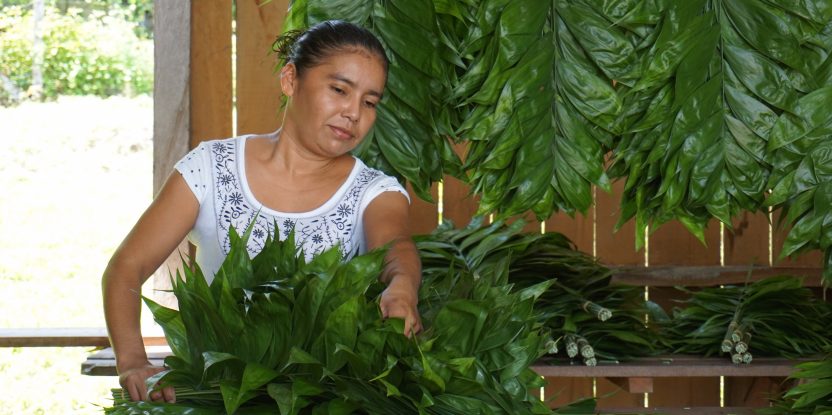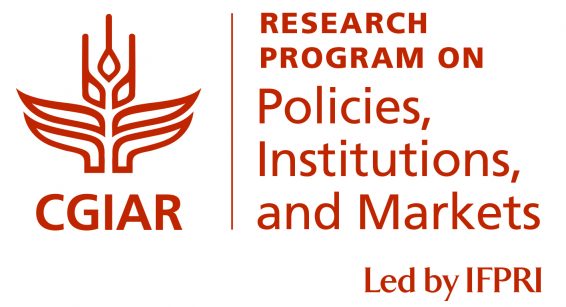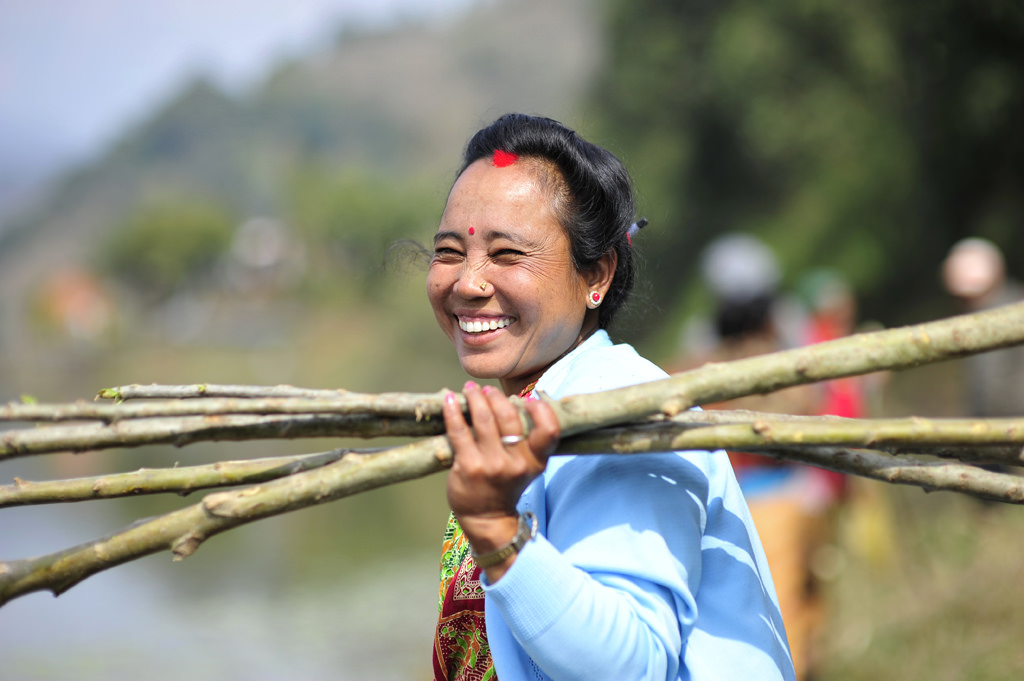
Over the past two decades, communities across the developing world have secured stronger rights to manage their forests, carried by the hope of better outcomes for governance, conservation and livelihoods.
So far, research results have been promising – studies by the Equity, Gender and Tenure research program at the Center for International Forestry Research (CIFOR) have found evidence of significant environmental, social and economic benefits associated with devolution of tenure rights in many settings.
Program director Steven Lawry last week delivered a webinar offering examples from case studies in Nepal, Mexico and Guatemala of the benefits of forest tenure reform.
Find out more about the webinar here.
This week, he’s in Petén, Guatemala, to participate in a workshop that considers the progress of Guatemala’s program of granting communities in the Mayan Biosphere Reserve long-term concession rights to forests. He took time to share his reflections with Forests News, and talk about the successes, and challenges to tenure reform going forward.
There has been a trend toward tenure reform across the developing world over the past two decades. What prompted this change?
Governments in the developing world, and in northern countries as well, tend to own forests on behalf of the public, and undertake to manage forest use directly for a variety of public purposes, including for conservation, recreation, and for generating revenues by leasing forests to companies for various commercial purposes.
Reform advocates argue that local forest-dependent communities, including indigenous communities, should be able to exercise a significant share of the forest use and management rights currently held by the state. They argue that in many contexts, forest management outcomes will be better — that is, deforestation rates will be lower and biodiversity better protected — and that with clearer rights, community members will invest in new kinds of forest-based enterprises that generate local income.
What kinds of reforms have been introduced in Nepal, Mexico and Guatemala, according to your research?
Each of these countries has implemented important forest tenure reforms in recent decades, and each has adopted a different approach to how rights are devolved.
Nepal devolved significant forest rights to Community Forest User Groups in 1993. Today, there are 20,000 registered groups across Nepal, managing about one-quarter of the total land area. Evidence suggests that forest cover has improved markedly as a result of the reform, and hundreds of new forest-based enterprises have emerged. Poorer sections of communities are guaranteed a percentage of income generated by forest enterprises. This is in recognition of the underlying social character of common property ownership: where all residents share ownership in land or forests, all should benefit, through employment or from dividends from the rents or fees paid by enterprises.
Mexico adopted a reform of its forest law in 1986. The reform puts local forests under the direct authority of ejidos, local governing bodies, that already had authority over governance of community agricultural land. Linking forest rights with land rights was a key innovation of the Mexico reform. Forest authorities still have significant regulatory roles, but these are administered within new boundaries of state intervention defined by the legal rights to forests held by ejidos.
Guatemala has taken a still different approach. In the mid-1990s, Guatemala granted communities in the Petén region, in the north of the country, concession rights over forests. Much like a commercial timber concession model, communities were given 25-year leases over forest lands and were allowed to extract high-value timber on condition that harvesting was sustainable and consistent with a long-term management plan certified by the Forest Stewardship Council (FSC).
Petén in Guatemala is considered something of a community forestry success story. Can you tell us why?
Generally speaking, outcomes of the community concession approach appear to have been good. Deforestation rates within the concessions are markedly lower than in surrounding areas. Employment has increased, and community members receive dividends from timber sales.
Overall, sources of income have become more diversified, so that families resident on concessions, or who have shares in the concessions, receive income from regulated hunting, collecting non-timber forest products, farming, working off-farm, and, of course, from timber-sale dividends.
Diversity of income sources contributes to long-term income stability and food security. Resident forest communities have taken over, or augment some roles normally performed by the state, including maintaining roads, fire prevention, supporting health care and promoting school attendance.
Community concessions in Petén are coming up for renewal in a few years, and you’ll be part of a workshop in Flores on 7-8 September to discuss policy options going forward. What does the research suggest?
Research findings underscore the socioeconomic and environmental viability of the concession model. Other countries, including Indonesia and Colombia, are considering how the model might be adopted to similar contexts in their own countries.
Concessions still face many challenges. The main high-value timber species, mahogany and cedar, are slow growing, and the low harvesting rates mean lower incomes, potentially. Communities are working with investors and nonprofit advisers to develop new kinds of forest-based products, such as Xate, an ornamental palm, and to link products to regional and global supply chains.
These efforts are producing promising results but it’s becoming clear that long-term grant funding is needed to help bring many forest enterprises to financial sustainability. It appears that strong technical and advocacy support from the Association of Community Forests of Petén (ACOFOP) has played a key role in creating a supportive policy and legal environment. This has been a vital contribution.
Similarly, organizations such as Rainforest Alliance, Wildlife Conservation Society, and many other international and local groups have invested heavily in capacity building. USAID has provided financial support to several important capacity building and market development initiatives, over a 20-year period. A lesson here is that various forms of investment in social capital are necessary preconditions to establishing the social, organizational, market and legal architecture within which social enterprises such as the Petén community concessions can prosper.
Understanding attributes of concession success and remaining challenges are among the topics the workshop will explore. My colleagues in CIFOR and Bioversity International are impressed with the interest in the workshop we are seeing from Guatemalan government officials (about 20 officials will be attending from Guatemala City) and from international NGOs and local and international researchers.
There appears to be a strong recognition of the value of sound evidence as a basis for shaping future policy toward community forest concessions. Partners see great promise in the model, and want to know how to better ensure their success going forward. Importantly, ACOFOP is a co-sponsor of the workshop.
How do you see tenure reform developing into the next decade, and what kinds of outcomes can we expect?
I see a promising but still uncertain future for forest rights devolution. There are differences in the pace and approach to reform across regions.
Several Latin American countries took considerable strides toward devolving rights in the early 2000s. The favored model in Latin America is community forest titling, with restrictions in the title requiring communities to maintain forest cover. Strong social movements advocating for indigenous forest rights have been important drivers of reform in Latin America.
In Asia, we see a variety of models, including Nepal’s efforts to devolve significant rights to community forest user groups, and India’s model of Joint Forest Management, or JFM. JFM licenses communities to use designated non-timber forest products, but most substantive rights are retained by forest authorities. Vietnam has had some success with family-based models. The Forest Land Allocation (FLA) program allocates up to 50 hectares of land to families who agree to convert it from agricultural to forest use.
Africa, on the other hand, has seen very little substantive devolution of rights to forests. Most community forest programs in Africa focus on benefit-sharing programs underwritten by grant funds paying communities to adopt forest conservation practices. There are many African NGOs and community groups advocating for forest rights devolution, and some governments are starting to listen, but the momentum needed to bring about significant changes in law and policy is just not there yet, at least in most countries.
CIFOR research and consultations in Petén from 7-8 September and the 29 August webinar were supported by funding from the CGIAR research program on Policies, Institutions and Markets.

We want you to share Forests News content, which is licensed under Creative Commons Attribution-NonCommercial-ShareAlike 4.0 International (CC BY-NC-SA 4.0). This means you are free to redistribute our material for non-commercial purposes. All we ask is that you give Forests News appropriate credit and link to the original Forests News content, indicate if changes were made, and distribute your contributions under the same Creative Commons license. You must notify Forests News if you repost, reprint or reuse our materials by contacting forestsnews@cifor-icraf.org.


